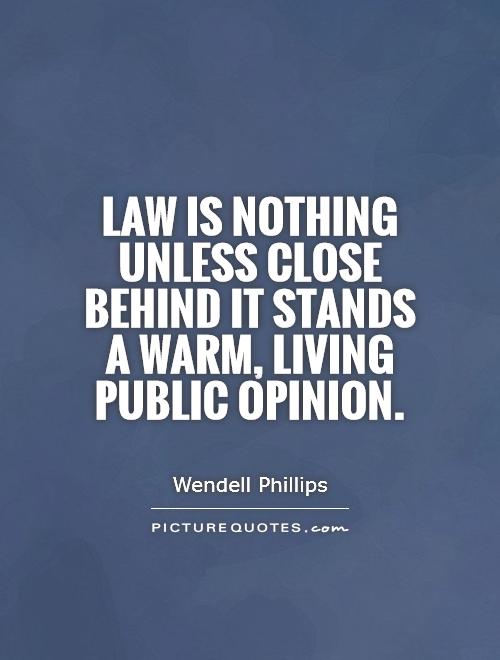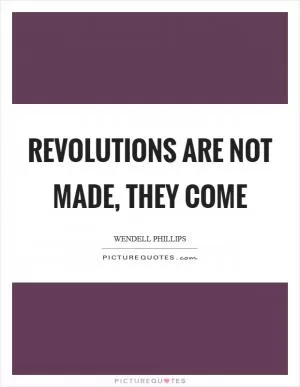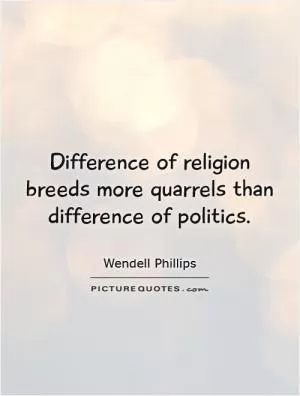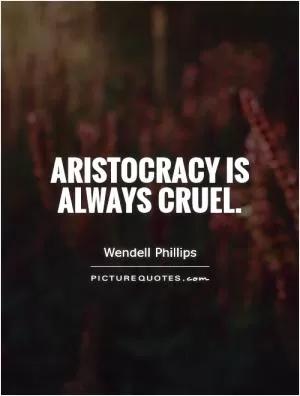Law is nothing unless close behind it stands a warm, living public opinion

Law is nothing unless close behind it stands a warm, living public opinion
Wendell Phillips, a prominent abolitionist and advocate for social justice in the 19th century, understood the power of public opinion in shaping and enforcing laws. He believed that laws alone were not enough to bring about meaningful change; they needed to be supported by a strong and active public opinion. In his famous quote, “Law is nothing unless close behind it stands a warm, living public opinion,” Phillips captured the essence of his belief that laws are only effective when they are backed by the collective will of the people.Phillips’ advocacy for the abolition of slavery in the United States is a prime example of how public opinion can drive legal change. In the years leading up to the Civil War, Phillips worked tirelessly to mobilize public sentiment against the institution of slavery. Through his powerful speeches and writings, he galvanized support for the abolitionist cause and helped to shift public opinion in favor of emancipation.
As public opinion began to turn against slavery, lawmakers were forced to respond. The passage of the Emancipation Proclamation in 1863 and the eventual ratification of the 13th Amendment in 1865 were direct results of the growing anti-slavery sentiment among the American public. Without the support of a “warm, living public opinion,” these landmark pieces of legislation may never have come to fruition.
Phillips’ words still hold true today in the ongoing struggle for social justice and equality. In order to bring about meaningful change, laws must be supported by a strong and active public opinion. This requires individuals to speak out, organize, and advocate for the causes they believe in. As Phillips understood, the power of the people is a force to be reckoned with, capable of shaping the course of history and driving progress towards a more just and equitable society.












 Friendship Quotes
Friendship Quotes Love Quotes
Love Quotes Life Quotes
Life Quotes Funny Quotes
Funny Quotes Motivational Quotes
Motivational Quotes Inspirational Quotes
Inspirational Quotes